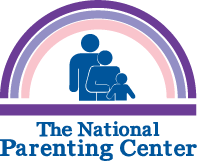It was not quite ten years ago that Toxic Shock Syndrome was first connected with tampon use. In the years since, fear and uncertainty about tampon use have lingered. Can your daughter safely use tampons today? Unless she has already had Toxic Shock Syndrome, she can use tampons safely with these guidelines: 1. Be aware […]
Medical
Teen girls are most likely to worry about superfluous hair, especially on the face or around the nipples of the breast. Most often, this hair growth has genetic causes. If your ethnic origin is Mediterranean, your daughter may have a greater tendency to have more body or facial hair than someone of Oriental origin. For
While most women know that breast self-examination is a good health habit, most teenage boys and young adult men don’t know that testicular self-examination is a health saving routine they need to establish during adolescence. Testicular cancer is one of the most common cancers in men between the ages of 15 and 35, affecting some
Could your teen be using or abusing drugs or alcohol? Ask yourself the following questions: 1. Have my teen’s group of friends changed suddenly? 2. Does my teen receive phone calls from people I’ve never heard of before? 3. Is he irritable? 4. Is he having trouble concentrating? 5. Is he getting into fights at
The excruciating big talk about the facts of life, or an embarrassed silence? This is a problem many parents share. And, while sex education ideally starts with honest answers to a child’s first questions at a very young age, it is not too late to start talking now. Forget about the “big talk.” This is
The grim results of sexual irresponsibility are everywhere, not only in unplanned pregnancies and sexually transmitted disease statistics, but also in emotional upheaval, broken hearts and dreams. How can you raise your teen to be sexually responsible, so that he or she can avoid these risks? 1. De-emphasize the double standard. Don’t restrict daughters while
While many teens experiment with a cigarette, alcohol or drugs just once, and others confine their substance use entirely to cigarettes, the trend is toward risk clusters instead of one type of risk taking behavior. Recognizing a risk cluster can help a parent spot early signs of trouble. There are four, well documented risk clusters.
It is estimated that one in every thousand young people under the age of seventeen has diabetes. How can you tell if your child or teenager might have this disease? Symptoms include: • Sudden, excessive hunger and thirst • Unexplained weight loss • Frequent urination • Fatigue If your teen has these symptoms, seek medical
Your teen has colds, headaches, stomach aches and a host of other physical complaints. You may find yourself wondering if he is becoming a hypochondriac! The unique stresses of adolescence can make some teens appear to be hypochondriacs. • First, the physical and life changes in teens cause stress and heightened body awareness, so aches
The teen years can be a time of special difficulty and risk for a teenager who has diabetes, asthma, or some other chronic disease. The teen with epilepsy fears that he may not be able to get a driver’s license. The teen with diabetes has to eat on a certain schedule. This can also be


